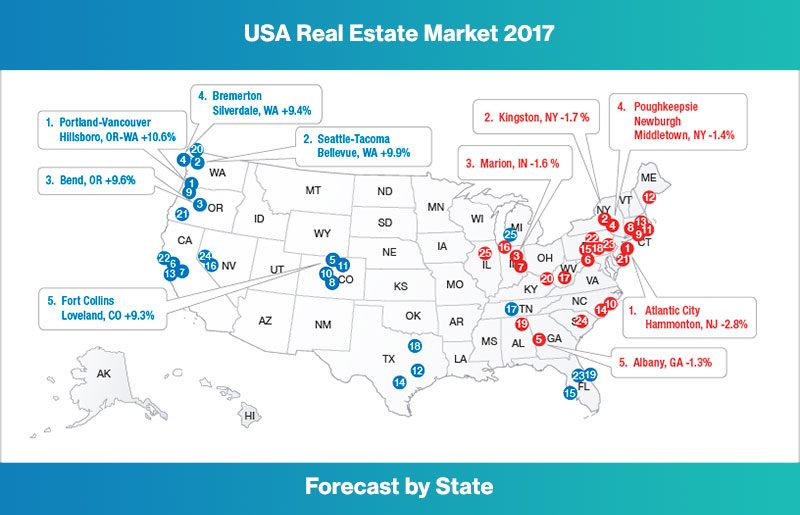
Nowadays, Real Estate Agents offer a ton of options to their visitors to make the right property decision. Listings can have filters like neighborhood medians and cost calculators but what they fail to do is make their properties more searchable. This is where artificial intelligence can give a boost in both traffic and guide users through listings.
First, let’s define AI: It is the ability of machines to solve problems through learning over time. It allows machines to make logical decisions similar to a human. Why is this useful? Because a human brain can process only a limited amount of data while a machine is limited only by processing power. Thus, if I am having a purchasing decision dilemma than artificial intelligence can help me. Let’s look at 5 uses of AI that can influence the real estate industry:
Artificial Intelligence Search
AI allows more specific search criteria rather than the traditional approach: location, zip code, area, bedrooms, bathrooms etc. With AI you can search based on criteria such as return on investment and forecasted property value. This aspect of AI-generated query allows real estate agents to have a much later involvement in the decision making process and brings in more qualified customers.
How many factors can you elicit with AI?
According to Google Rank Brain, there are more than 10.000 A.I. criteria that can be applied in searches, they can change significantly a traditional real estate website. Here is an example of a website using some AI in its sidebar search criteria:

AI Powered Chat Bots
Probably the most mature technology from this list AI chat box have been in development for a while but it is only until recently that they reached a wider audience. They can perform simple task like booking an appointment, giving you detailed property information, verify contact details and even give insights about which properties will be available next. Naturally, this prediction requires a comprehensive knowledge of the market as well as a lot of data but as chat bots are getting more and more application in consumer-related industries, this process becomes more accurate. As this technology continues to develop, users will be much more inclined to purchase once they reach an agent, meaning the sales funnel will become a much more automated process. By 2020, A.I. chat boxes are expected to handle most of the education phase in marketing departments. One of the best chat bots on the market is done by Lokai raising awareness about Ethiopian women.

Maybe this is not enough to understand the power of chat bots. Watch this video to see a natural language processing and artificial intelligence making conversation with a potential buyer:
Image Recognition Recommendation
Agencies can recommend properties based on what buyers have already looked at. This can be achieved by taking a picture when you visit a property and uploading it into Homesnap. They pick up the area, the type of house and your budget based on the property to give you an accurate listing which they can automatically send a newsletter or simple notification email. As a result, speeding up the buying process by reducing the need for a broker to search through properties and send you relevant listings. That leads us to think that in the future, most of the jobs in a real estate agency will be automated. This brings us to our next point.
Automating Jobs
According to an Oxford University study, AI will have a significant impact on automating most of the jobs in a real estate agency. Their study reveals what positions will be replaced by AI and by 2020 if their estimations are correct, those are:
Real Estate Association Managers: 81%
Real Estate Sales Agents: 86%
Appraisers and Assessors of Real Estate: 90%
Real Estate Brokers: 97%
If you are thinking that automating the entire real estate brokerage experience will make the purchase of a home an emotionless experience than you might be right. At the end of the day, people want to make the best purchasing decision and according to a study by Inman, this point has already been reached. In their study, clients preferred a bot-generated listing. Furthermore, they had a hard time which listings were human-generated or bot-generated.

How can bots suggest listings?
By using a random forecast approach, AI can use previous searches, preferences, other users search patterns and many more criteria to give much a more accurate result and improve over time.
“ What if semantic technologies combined with cognitive computing and natural language processing help agents do their job better? There is way not be left out.”
These capabilities seem to indicate a radical change in the industry. Despite the rigidity of the technology and the seeming difficult of clients to comprehend that they are communicating with a bot, accurate listings is justifying the adoption. As artificial intelligence becomes more accurate with time, the user experience will as well. The role of the broker will be diminished but not become redundant, since, purchasing a home is a very emotional experience and there will always be the need for a broker to give that extra push.
